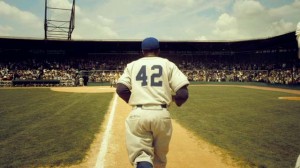July 31, 2013 42
As a middle-aged Midwestern white guy, I don’t really feel like I have a voice in the race discussion. I mean, I think it’s ridiculous for someone to look down on someone else because of the color of their skin, and if you’re around me doing that I hope to high heavens I will correct your stupid misconceptions, but my experiences in race relations have been… limited. The number of non-similar-to-me [read: white] people I knew growing up was less than ten. Maybe less than five. That’s not really anyone’s fault nor is it inherently a bad thing, it just is what happened. Yes, that can become a bad thing if it fosters a particular mindset, but it isn’t a bad thing all on its own – like a lava lamp, right? A lava lamp isn’t a bad thing on its own, but if you use it to beat someone up and burn them it becomes a tool for evil. Growing up in a predominately white area is a lava lamp, I’m saying. So I don’t feel I have a voice because I don’t have the history to inform it.
That’s why, for me, a film like 42 is important. As is Guess Who’s Coming to Dinner, or the book Black Like Me or Schindler’s List, a hundred other works. They’re important because it they help me experience – however infinitesimally – something I never would on my own. They help me see something I didn’t know or something I only knew “in theory.” They put a face and a name to something I only know about in the abstract.
In 42, Harrison Ford plays Branch Rickey, the team owner responsible for putting Jackie Robinson on the Dodgers. I don’t know if Real Life Branch was exactly like Movie Branch, but MB had some good things to say. His speech about what sympathy means (“suffering together”) struck me, and, really, is what prompted this entry. How often are we suspicious or hateful towards someone because we don’t know their situation? Carmine Falcone said it in Batman Begins: “You always fear what you don’t understand.”
I didn’t know much about Jackie Robinson going into this movie, other than he was the first black player in Major League Baseball. I didn’t know how he got there or any of the people around the story. I’m not much of a baseball fan, so you’ll forgive me if I’m not up on all these things (I hope). Seeing the process in this movie made it real for me, and even though it was hard to watch in places, it was good for me to be reminded of history and what others have had to overcome. I can sit there in my La-Z-Boy and wish they could tell the story without using particular words, but it hits me that Jackie lived it and heard those words and a million other hurtful ones that weren’t even portrayed in the movie. And of course he wasn’t the only one. Millions without the benefit of having a supportive wife or a Branch Rickey or a teammate willing to visibly show support dealt with it every day, and many still do.
That, of course, is the thing that gets me. “Look how far we’ve come!” quickly gets replaced with “I can’t believe how much farther we have to go” simply in a perusal of recent events. There’s a scene in 42 where a white man and his son are at a game waiting for it to start. The son looks to be 12 or 13, and he’s really excited about being there, looking forward to how many runs his team will get, and he and his dad are sharing this good time together. Then Jackie comes out on the field and the scene changes instantly. The father, who seconds before was talking to his son about the game, starts yelling racial epithets, spittle flying from his mouth. Others around him star doing the same thing, and the camera slowly starts to move in on the boy. He looks confused for a few seconds, glancing around at everyone in his section who is yelling the same things his father is. They’re not talking to him, they’re not verbally saying “this is how things are,” but when the boy turns back to the game and yells one ugly word, you’re seeing the birth of more accepted ugliness and it is a stab in the gut. Is it heavyhanded, too much? I couldn’t say. All I know is that it was effective for me, a picture of how racism is passed on, a scene that changed in an instant from one of anticipation and joy to one of learned hate.
This is the power of telling stories: it’s good to be reminded of how things were, even when it’s hard to see it in action. It’s good to learn the history so we don’t repeat it, to understand it so we don’t do it.
Written by: Mark

Permalink # Danna
said
Danna
said
This movie was so loaded w incredible one liners, I will watch it again just to write them all down.